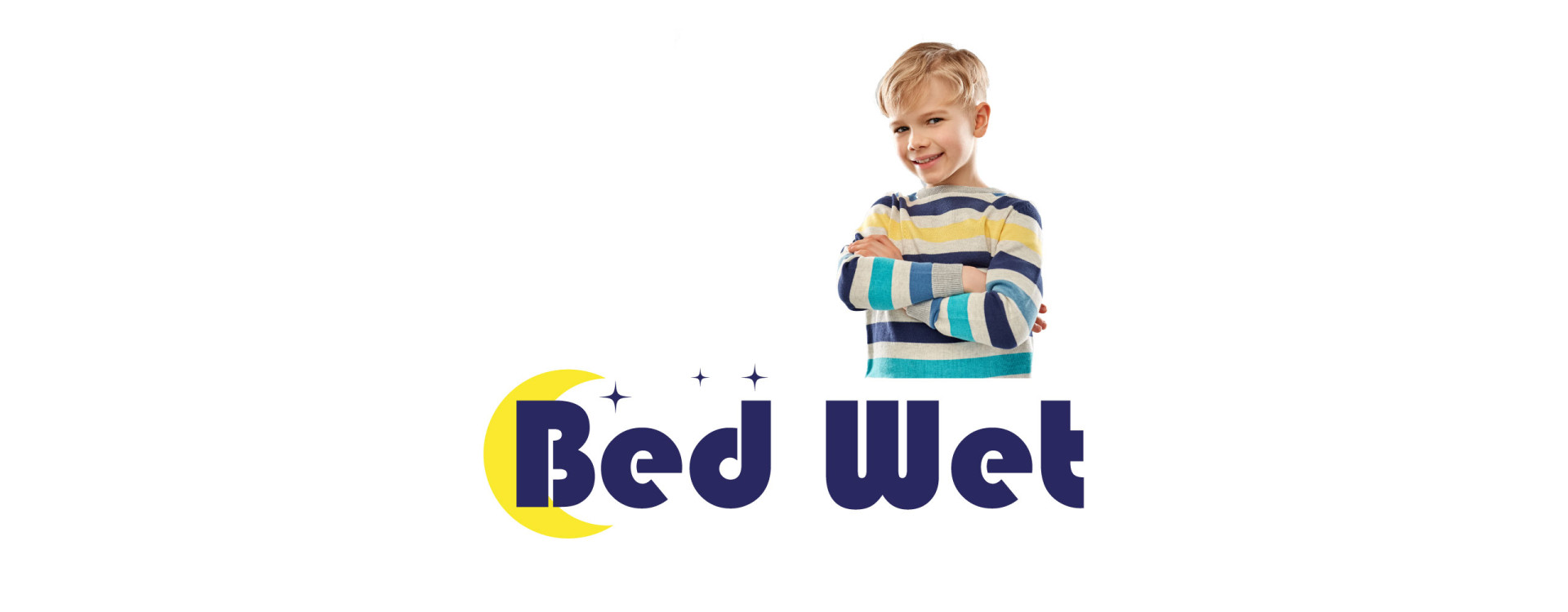Certains vêtements sont pensés pour faciliter la vie, sans compromis sur le confort. La grenouillère adulte 4Care en coton avec fermeture éclair à l’avant s’inscrit dans cette idée : une pièce simple, pratique, agréable à porter, qui aide au quotidien.

Childhood encopresis: what you need to know
Reminder
The movement of stool (feces, commonly called "poo") along the colon is ensured by contractions of its wall. Some of these contractions are large and occur several times a day, mainly during meals. They propel the stool into the rectum, where they trigger the sensation of needing to defecate. At this point, there is a reflexive and involuntary relaxation of part of the anal sphincter muscle (the smooth muscle, also called the internal sphincter). This relaxation results in the passage of stool through the anus and its evacuation.
During toilet training, around the age of three, a child learns to voluntarily contract the second part of their anal sphincter (the striated sphincter, also called the external sphincter). This allows them to retain stool and remain "clean" until they are in a position to defecate "socially." As long as the child has not voluntarily evacuated their stool, the rectum remains full, and the sensation of needing to defecate disappears until the next reflexive bowel contraction. A toilet-trained child's bowel movements therefore occur at a voluntarily controlled pace, dependent on the speed of their digestive transit, which varies from person to person. Thus, for a child, the number of voluntary and normal bowel movements ranges from three per day to one every three days.
Mechanisms of encopresis
The child voluntarily withholds bowel movements, no longer goes to the toilet or potty, their rectum fills up and stool leaks occur due to overflow without them thinking about it.
Stool retention in the rectum is due to a conscious effort by the child to hold it in, even though they normally feel the urge to defecate. Evacuation is intentionally delayed.
Gradually, the urge to defecate diminishes as the rectum becomes accustomed to being filled with increasingly larger volumes. Beyond a certain volume of stool in the rectum, the smooth anal sphincter relaxes physiologically, and leakage of formed or semi-formed stool occurs when the child's attention lapses and they no longer think to hold it in by tightening the ridged part of their anal sphincter. Stool leakage occurs due to overflow from the rectum, which is too full.
If stool remains in the rectum for a long time, it hardens and forms a large, hard lump called a fecal impaction, which can weigh up to a kilogram. This fecal impaction irritates the rectal wall, causing fecaloid secretions (a fluid secreted by the rectal wall that is colored like stool) to be expelled through the anus, which is different from diarrhea.
Children with encopregia are often initially constipated, which facilitates the stagnation of stool in their intestines, particularly in their rectum. This associated constipation is usually benign, non-pathological, and does not, on its own, explain the voluntary retention of stool in the rectum.
Encopresis is distinguished from true incontinence due to a sphincter abnormality caused by neurological diseases or congenital malformations. It is also distinguished from leakage caused by abnormal colonic filling in cases of colon dysfunction where the colon does not contract, as in Hirschsprung's disease.
Clinical
The child is usually between 6 and 10 years old, and is most often a boy.
These signs can be present even after the child has been toilet trained for several months or years (secondary encopresis), or the child may never have achieved bowel control (primary encopresis). In severe cases, this condition can persist long after adolescence. Fecal incontinence is always present.
Fecal incontinence often occurs during physical activity or play, when a child's attention wanders. It most commonly happens during the day, but can also occur at night. Paradoxically, this incontinence doesn't seem to bother the child, who is otherwise active and healthy.
There may also be leakage of liquid stools due to irritation of the rectum which is too full of hardened stools (fecal impaction), often mistaken by parents for diarrhea because of their liquid and uncontrolled nature.
Other signs are often present: abdominal pain, bloating, and constipation. Straining to pass these hard stools can tear the lining of the anus and create a painful fissure that sometimes bleeds. Normal bowel movements are rare, sometimes less than once a month. Most often, the child is able to control their urine, which proves that encopresis is not a neurological condition.
The consultation with the doctor
The consultation has four goals:
- To diagnose encopresis, which is a functional disorder, and to rule out other causes of incontinence that may require specific treatments such as surgery,
- to rule out a very rare congenital disease called Hirschsprung's disease (affecting the nerve branches of the intestinal wall) which can present as encopresis,
- assess the severity of the condition,
- to guide parents towards a possible psychological cause which will be essential to address in order to facilitate the recovery from encopresis.
The interview and examination are conducted in the presence of the parent(s) accompanying the child:
Family history and sibling status are noted. Family composition will be noted (blended family, etc.).
The child's medical history must be recorded since birth, using the health record if possible. The growth curve must be normal.
Possible intellectual difficulties are being investigated, as these promote the establishment and especially the persistence of this pathology by making its psychological management difficult.
The conditions for toilet training will be requested, and information will also be sought about the child's daily care (nanny, school, family care, etc.).
Sometimes the abdomen is bloated and hard stools can be felt through the wall, obstructing the colon.
The neurological examination should be normal.
Inspecting underwear often helps to confirm the diagnosis of fecal incontinence.
A thorough examination of the anal region, performed on a consenting and reassured child, should rule out any anal malformation, as well as any genitourinary issues. An anal fissure can be caused by the passage of large stools. A careful digital rectal examination will confirm the normality of the anus, which is usually relaxed due to the normal sphincter relaxation reflex when the rectum is full of stool. The digital rectal examination immediately reveals stools, which are most often hard.
The child often minimizes the seriousness of the problem and its impact on their physical activities. The frequency of diaper changes and toileting should be recorded.
The interview will aim more to guide parents toward potential psychological difficulties than to identify them directly. Initial consultations should be cautious, and psychological support will ideally be provided later by specialists (psychologist or psychiatrist).
Further tests are unnecessary in typical cases. Often, parents already have X-rays confirming fecal impaction in the rectum, which also frequently occurs throughout the entire colon. If an X-ray of the intestine has been performed, it will most often show residual fecal impaction in the colon. The volume of retained stool can be significant. The diameter of the colon will often be increased, which is not at all pathological if this enlargement extends along its entire length, including the rectum. Anorectal manometry can be used to look for signs of Hirschsprung's disease.
Causes
The causes are twofold. They combine the often-present constipation with psychological factors. Psychological difficulties can stem from mistakes during toilet training: starting potty too early, obsessive parents, or conversely, a lack of support during this period. Alternatively, they may be psychological difficulties unrelated to toilet training: relationship problems, emotional deprivation, or psychological or physical trauma. It's important to note that encopresis is often a way for the child to communicate with those around them.
In some cases, there is no psychological cause: encopresis can be temporary in a constipated child who has an anal fissure due to a slightly more difficult bowel movement than usual. The pain from this fissure makes them afraid to defecate. They may then hold it in until they experience overflow incontinence.
Treatment
First and foremost, treating constipation is essential. By softening the stools, it helps the child pass them more easily and makes bowel movements less painful. Treatment will consist of a diet rich in fiber, vegetables, and fruits, along with sufficient fluid intake. The diet should not be too restrictive, as this can lead to further conflict with parents and is rarely effective on its own.
Suppositories and enemas should be avoided because they can be unpleasant for the child, but they are sometimes truly necessary, particularly when there is a significant accumulation of stool (fecal impaction) and when they are used as a tool for bowel retraining. Oral laxatives are always necessary; don't hesitate to give fairly strong doses to these children, who are often very constipated. When constipation is severe (less than one bowel movement per week), it makes treating encopresis more difficult.
It is very important that this treatment be continued for several months, even after recovery. It should be noted that constipation is a common and benign condition that very often begins in childhood and persists in more than half of cases after puberty, which explains the need for prolonged management of encopresis to prevent relapses.
In case of a fissure, local care with a mild soap and a healing ointment will be used.
In simple cases, the functional and psychological aspects can be addressed through non-specialized care without the intervention of a psychiatrist or psychologist. Indeed, initial consultations will reassure the child and their parents by ruling out a serious illness. These consultations will allow the doctor to explain the mechanism of the incontinence and the voluntary nature of the effort to hold it in. It is true that the child most often admits to feeling the urge to defecate, but holds it in until it is too late. The psychological causes suggested by the doctor may be benign and resolved by the parents themselves.
If this simple approach fails, parents should be advised to seek psychological help as soon as possible. Indeed, the older the child, the more likely the symptoms are to persist. As for severe psychiatric conditions, these are usually already diagnosed, and encopresis is not the primary symptom. In these cases, treatment is difficult and rarely effective; however, dietary and laxative therapy should not be neglected.
To date, the effectiveness of anorectal rehabilitation has not been proven; however, it can help children understand and control the mechanisms of continence and defecation. It is rarely prescribed as a first-line treatment and may be guided by a prior manometric examination (recording of anal pressures using a small probe).
FAQ Childhood Encopresis
What is encopresis?
Encopresis is the regular passage of formed or semi-formed stools in underwear or unusual places (on the floor, etc.) after the age of 4. There may be periods during which the problem seems to temporarily disappear.
What is the cause?
The child intentionally holds back stool, which leads to excessive filling of the rectum, causing it to overflow and involuntarily release stool. This is a functional disorder; the intestines, rectum, and anus are otherwise normal.
Is it incontinence?
This is not true incontinence in the sense that the anal sphincter and rectum are normal. However, there are still uncontrolled leaks of stool because the anus reflexively relaxes when the rectum is too full.
Does my child have a serious illness?
No, encopresis is most often due to common constipation of varying severity, which can be treated medically, and sometimes to psychological issues that are more or less easy to resolve. There is no digestive abnormality; if there is, it is not encopresis but true incontinence.
Does the diagnosis require complicated tests?
Most often, a simple consultation is sufficient to rule out serious illnesses and to make a diagnosis of functional disorder.
Can the child heal on its own?
Yes, if we help him. We need to address any psychological issues that may have contributed to the development of this disorder and give him laxatives to combat the constipation that is almost always associated with it.
Are the psychological problems that triggered these disorders serious?
First of all, they are not always present. A constipated child with an anal fissure will be afraid to defecate because bowel movements are painful, and they will hold it in until their rectum is overfilled. In other cases, the psychological causes may be benign and resolved by the family themselves. In more severe cases or situations, psychological or psychiatric help is necessary and will help resolve these problems.





Latest comments